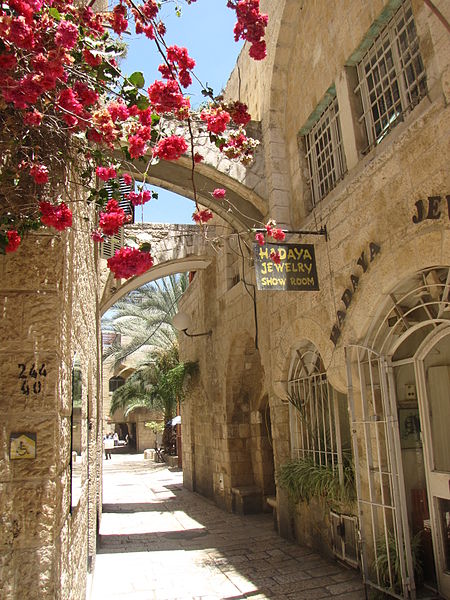20 July. Paul explains why circumcision is unnecessary to follow Jesus
"After fourteen years I went to Jerusalem again, this time with Barnabas. I also took Titus [a Greek-speaking Gentile believer] with me. I went because God showed me I should go. I met with the [Jewish] believers there, and in private I told their leaders the Good News that I preach to the non-Jewish people..."
"Titus was with me, but he was not forced to be circumcised [to be accepted as a follower of Jesus], even though he was a Greek. We talked about this problem [of circumcision for non-Jewish believers] because some false believers had come into our group secretly. They came in like spies to overturn the freedom we have in Christ Jesus. They wanted to make us slaves [to the Jewish religious laws]. But we did not give in to those false believers for a minute..."
"Those leaders [of the believers in Jerusalem] who seemed to be important did not change the Good News that I preach.... But these leaders saw that I had been given the work of telling the Good News to those who are not Jewish, just as Peter had the work of telling the Jews.... James, Peter and John, who seemed to be the leaders, understood that God had given me this special grace, so they accepted Barnabas and me."
"They agreed that they would go to the Jewish people [with the Good News about Jesus] and that we should go to those who are not Jewish. The only thing they asked us was to remember to help the poor - something I really wanted to do."
(Galatians 2:1-10)

Paul continued the account of his journeys by saying that after fourteen years (i.e. fourteen years after his conversion in 35AD) he went back to Jerusalem with Barnabas and Titus (for the Council of Jerusalem in 49/50AD – see Acts 15:1-4).
He met privately with the leaders of the church (Peter, James and John) and explained why he believed Gentile believers should not be required to adopt Jewish traditions such as circumcision. The leaders agreed with him, and Titus (who was a Greek-speaking Gentile believer) wasn’t forced to be circumcised – even though some of the Jewish believers argued in favour of this.
After the Council of Jerusalem ended (in 50AD), James (as leader of the church in Jerusalem) sent a letter to the believers in Antioch in Syria explaining the leaders’ decision that Gentile believers need not be circumcised (see Acts 15:22-35).
The Council of Jerusalem had met to decide the church’s attitude towards the circumcision of Gentile believers. It was taken for granted that Jewish believers in Jesus Christ would be circumcised in accordance with the Jewish law (see Genesis 17:1-14). But there was disagreement over whether Gentile believers ought to be circumcised.
Many of the Jewish Christians believed that Gentile believers should be circumcised as converts to Judaism (as Christianity was still regarded as a Jewish sect), but Paul believed passionately that they should not be required to be circumcised.
Paul – a Greek-speaking Jew from cosmopolitan Tarsus – knew that the Greeks (who were Gentiles) prized athleticism and bodily perfection, and regarded circumcision (or any mutilation of the flesh) as abhorrent.
The Jewish Christian leaders discussed the issue, and James – the leader of the Jerusalem church – issued a statement saying that Gentile believers would not have to be circumcised. Other more conservative Jewish believers were still not convinced.
The Gentile believers welcomed this decision, but shortly after James’s decision had been received, Peter visited Antioch and appeared to change his mind on the issue (see Galatians 2.11-12). He refused to eat with the Gentile believers in Antioch for fear of offending the Jewish Christians who still held the view that Gentile believers should be circumcised.
They believed that the Gentile believers would be ritually ‘unclean’ if they weren’t circumcised, and would make the Jewish believers 'unclean' by eating with them (see Acts 10:28, where Peter had reluctantly faced this issue before).
Even Barnabas had been swept along by this view, and, to Paul’s amazement and disgust, had refused to eat with the Gentile believers (see Galatians 2.13). This disagreement fuelled an argument between Paul and Barnabas and no doubt contributed to their splitting up before Paul’s second missionary journey later that year (see Acts 15:39-40).
Paul rebuked Peter and the others in public – opposing their actions and condemning their decision not to eat with the Gentile believers.
The photo (by Sweden) shows HaYehudim Street in the Jewish Quarter of the Old City of Jerusalem.
You can read more of Paul's Letter to the Galatians @ https://www.thebiblejourney.org/…/13-pauls…/alive-in-christ/
